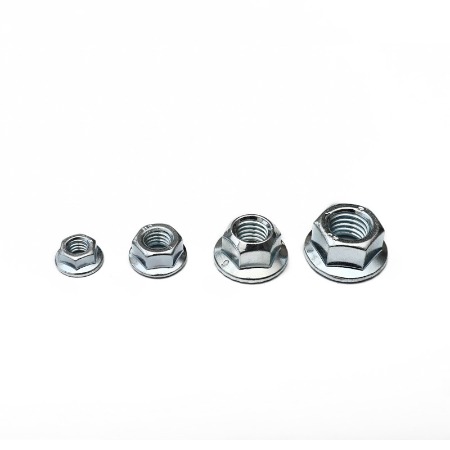The S
elf-Tapping screw creates its own threads and eliminates the need for drilling a pilot hole. These screws are used in many materials including metal and plastics.In this study, a virtual CAD model of bone-screw interface was constructed. Stress changes at the screw-bone interface were observed for a given amount of torsion and indicated that self-drilling screws had lower stresses.Self-tapping Screws are threaded fasteners that tap their own holes as they are driven into materials like wood, plastic and metal. These screws can be used in a variety of projects from furniture to appliances and even for products that require maintenance and disassembly such as air-conditioning units or canopies.When it comes to choosing the correct type of screw, there are a few factors that need to be taken into consideration. Firstly, the diameter of the screw is important. This should be matched to the project to ensure the screw is strong enough to hold the load without failure.

Secondly, the head style is important. There are many different options including countersunk, pan head, button-head and hex heads. The shape of the head can affect how it interacts with the substrate and can help to achieve a clean finish.Finally, the point of the screw is also important. It needs to be sharp and precise to penetrate the substrate, tap a hole and create a good hold.Screws can be used in numerous applications, depending on their design and function. Screws are designed to be driven in to materials such as wood, plastic or metal. They are usually placed in a drill or screwdriver and driven into the material, where they will be held securely.One of the best known uses for self tapping screws is for hanging drywall. Their special drill-like tip and thread pattern are perfect for digging into drywall. They are also used for sheet metal work, such as framing various objects including automobiles, buildings and furniture.
These screws are also used in medical applications, such as bone replacements and other types of surgery. One study simulated the effect of these screws on the bone-plate interface using 3D FEA. The results showed that a standard screw had higher stress and deformation values at the apical region of the bone-plate interface than a self tapping screw. However, the torsional effect of the self tapping screws was minimal over the entire length of the screw.Self-tapping screws can be made from a variety of materials, including steel and stainless steel. They are also available in different hardnesses and strengths based on the amount of nickel, chromium and other alloys they contain.They come with either a sharp, piercing tip or a flat, blunt tip. The sharp-tipped screws are designed to drill their own hole into softer wood and plastic, but they should always be used with a pilot hole in sheet metal and harder materials.
The results showed that the self-tapping screw generated higher stresses and deformation at the apical region than the self-drilling screw.If you are working with a new construction project that requires fastening 2 different types of materials together (such as wood and metal), then self-tapping screws can be very useful. They can save you time and effort by eliminating the need for a separate tap. When using these screws, it is important to drill the correct size hole for the screw. This is because the screw will cut its own threads into the material and the head of the screw must fit properly.If the hole is too large, the screw will not be able to seat properly and could break. If the hole is too small, higher driving torque may be required which can cause the screw to break or strip.It is also important to use firm and controlled movements when tightening a self-tapping screw because over tightening can cause the threads to strip. Lastly, it is recommended to use a screwdriver that has a flat tip for a better grip on the head of the screw.

